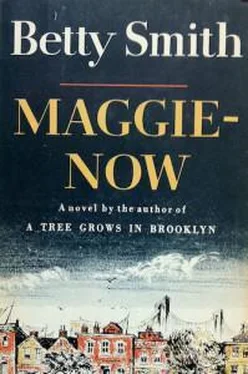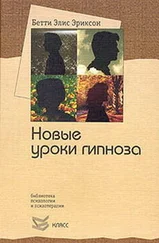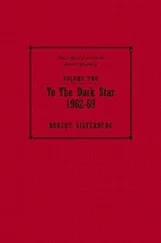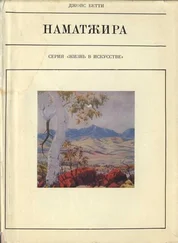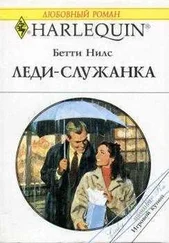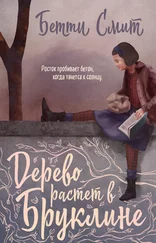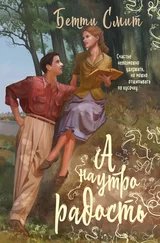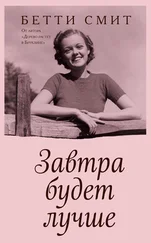Бетти Смит - Maggie-Now
Здесь есть возможность читать онлайн «Бетти Смит - Maggie-Now» весь текст электронной книги совершенно бесплатно (целиком полную версию без сокращений). В некоторых случаях можно слушать аудио, скачать через торрент в формате fb2 и присутствует краткое содержание. Жанр: Проза, на английском языке. Описание произведения, (предисловие) а так же отзывы посетителей доступны на портале библиотеки ЛибКат.
- Название:Maggie-Now
- Автор:
- Жанр:
- Год:неизвестен
- ISBN:нет данных
- Рейтинг книги:3 / 5. Голосов: 1
-
Избранное:Добавить в избранное
- Отзывы:
-
Ваша оценка:
- 60
- 1
- 2
- 3
- 4
- 5
Maggie-Now: краткое содержание, описание и аннотация
Предлагаем к чтению аннотацию, описание, краткое содержание или предисловие (зависит от того, что написал сам автор книги «Maggie-Now»). Если вы не нашли необходимую информацию о книге — напишите в комментариях, мы постараемся отыскать её.
Maggie-Now — читать онлайн бесплатно полную книгу (весь текст) целиком
Ниже представлен текст книги, разбитый по страницам. Система сохранения места последней прочитанной страницы, позволяет с удобством читать онлайн бесплатно книгу «Maggie-Now», без необходимости каждый раз заново искать на чём Вы остановились. Поставьте закладку, и сможете в любой момент перейти на страницу, на которой закончили чтение.
Интервал:
Закладка:
"'Tis time you knew," he said, "how your poor father lived. It was a poor house. Poor. Poor. The poorest of the poor. A oneroom sod shanty with a leanto where me bed was and me bed a bag of straw. And the neighbor's starving pig sneaking in on cold nights and wanting to lcep with me for the warmth of it." The child laughed.
" 'Tis not to laugh at the v. ay the slanty roof came down to the ground where me head lay and me bumping me head on it every time I moved ill me sled p.
"And the black hole in the wall where the poor fire didn't keep us warm in winter but roasted us in summer when we cooked our food in it. And oh, the poor food!
The small potatoes from the starving ground and the rough, black bread burned on the bottom, and an egg maybe once every two weeks, and our Christmas dinner, a hen, itself, tough, and she being too old to lay.
"And water from the well, and the well a cruel walk from the shanty on a cold winter s morning and the bucket too heavy for a skinny boy. And no toil. . no plumbing in the house a-tall and we using the woods in back of our shanty."
"I betcha you were happy there, Papa."
"Happy, she says!" h' commented bitterly. "I hated it and left ithout looking back once when the time came."
But he thought of how green the fields were in summer and the meadow flowers hit den in knee-deep grass and the lake that took its color from the sky or did the sky take its color from the lake? And the way the thrown, dusty road to the village looked so lazy in the sun. He remembered the good nights in the tavern with the men liking the way he danced. His mind went to Rory-Boy in the great days when they had been true friends. He thought of his fiercely protective and possessive mother.
And oh, the dear sweetness of his Maggie Rose! He thought of the idle, golden days of his youth and he wept in his heart.
God forgive the lie size saying I hated it so, he prayed.
Remembering, he spoke with bitterness to his daughter;
his
~ i 4 1
darling's namesake. "Your mother was the one raised in a rich house. Tell her to take you over to Bushwick Avenue and show you the house. Tell her to show you the stable where your father laid his head nights. Look good at that rich house what should have been mine. . ours.
. if that crook. ."
Ah, he thought, let the dead rest in peace even if he was a black'ard in life.
Walking over to the old house, Mary answered Maggie-Now's question: "Why didn't I take you there before? Because the house is so changed and it makes me sad."
Yes, it was changed. The rooms on either side of the stoop had been made into shops. The bay windows were now store windows. One was a hairdressing parlor with intricately coifed wax dummy heads in the window. The other window showed only a swan, pure, white and immobile and with each feather in place. The swan sat proudly on a bed of swansdown. A card, dangling by a brass chain suspended from the swan's beak, read: Genuine Swansdown Filled Pillows.
"Is it real>" breathed l\laggie-Now.
"It was. Once. Now it's stuffed."
"Maybe it's still alive and they give it medicine to sit still."
"Now you know better."
The upstairs windows had a blank look. A card in one of them said: Rooms. The basement rooms had been converted. A swinging sign with a red seal informed people that a notary public was available there. A
rooms-for-rent sign was attached to the notary's shingle.
Mary figured it out that the man who'd bought the house was the notary in the basement. He was squeezing every penny of revenue out of his investment. She wondered how many transients had slept in her white room since she had left. She sighed as she thought of her piano once standing in the room that now held sewing machines, bolts of ticking and bags of down.
The stable was now a separate property, divided from the big house by an iron picket fence. An unevenly painted sign over the barn door read: Pheid ~ Son.
Plumbers. Day e; Night. A broken toilet lay on its side in the yard. A man, Pheid himself, was uncrating a pair of double, soapstone washtubs. A boy, a few year older than Maggie-Now, was helping the man. The man
~ ` s]
looked up as Mary and Maggie-Now approached.
"Yes?" he asked.
"I used to live here when I was a girl," explained Mary.
"That so? Well, a E'etalian owns the house now. But I
own the shop."
"Is that so?"
"That sign: Pheid & Son? Well, this here is son. Son Pheid." He put his arm about the boy's shoulder. His pride was evident. "I'm breaking him in young. I believe in that," he said.
"I see," said Mary.
"Well, help yourself. Look around." He went back to his work. "Where did Papa sleep?" asked Maggie-Now.
"Up there. That little window. Where the pipes are sticking out.
"Chee! "
"After we were married, we lived in the big house, of course. For a little while, anyhow."
"Where is. . are, all the snowball trees you said was always in the yard?"
"Someone cut them down, I suppose."
"I'm glad I never lived here."
"Why, Maggie-Now, don't say that. It was very nice before it was all cut up into rental property. It was good to live here long ago. It was cool and dark in the summer and bright and warm in the winter."
"Why did you all move away then, if it was so nice?"
"Well, your grandfather died."
"Why? "
"Oh, Maggie-Now! 1r was his time tO die."
"Papa said he died from being scared."
"Your father didn't mean that."
Mary knew this was a logical time to tell her of her grandfather. But how could she tell the child that her grandfather had been a thief? But was he? The others who had stood trial had been exonerated. And politicians still kept on doing the same things.
No' I will not complicate her growing years by telling her.
Patrick won't tell her since he hasn't so far. She may find out when she's grown up. 7Ry that time, his crimes if crimes they were will be softened; faded and far away.
~ ~o61 "What did he die of then?" asked Maggie-Now.
"What we all die of in the end. His heart stopped beating."
"I'm glad. . not that he died," amended Maggie-Now quickly. "I mean I'm glad I don't have to live here. I like our own house where we live now. And 1 don't care if it's rich or poor."
l'n~ glad she's got that settled, thought Mary. A~Iaybe no~v she'll stop tcsirlg that Ivory "relative."
"Of course," said Maggie-Now airily, "it's all relative."
~ (2HAPTkR SEVENTEEN ~ MORE wonderful to Maggie-Now, almost, than Christmas, the first day of summer vacation or the trip to Coney Island, was Memorial Day, called Decoration Day in Brooklyn, when her mother took her on the yearly trip to the cemetery.
"When will it come? When will it come?" she began asking her mother soon after Easter.
"You'll know by the lilac bush in Father Flynn's yard.
Lilacs always bloom for Decoration Day." And it was so.
It was always a warm, sunny day with a sweet-smelling wind around the next corner. When Maggie-Now went to the baker's for the morning buns, thtre was usually a customer there who confided to the bakery woman: "I'm going to the cemetery in my shape today." That meant it was warm enough to go without a coat.
Maggie-Now and her mother went to the cemetery in their shapes. The girl wore her Easter dress and Sunday hat and Mary dressed in her brushed and mended best.
Читать дальшеИнтервал:
Закладка:
Похожие книги на «Maggie-Now»
Представляем Вашему вниманию похожие книги на «Maggie-Now» списком для выбора. Мы отобрали схожую по названию и смыслу литературу в надежде предоставить читателям больше вариантов отыскать новые, интересные, ещё непрочитанные произведения.
Обсуждение, отзывы о книге «Maggie-Now» и просто собственные мнения читателей. Оставьте ваши комментарии, напишите, что Вы думаете о произведении, его смысле или главных героях. Укажите что конкретно понравилось, а что нет, и почему Вы так считаете.
